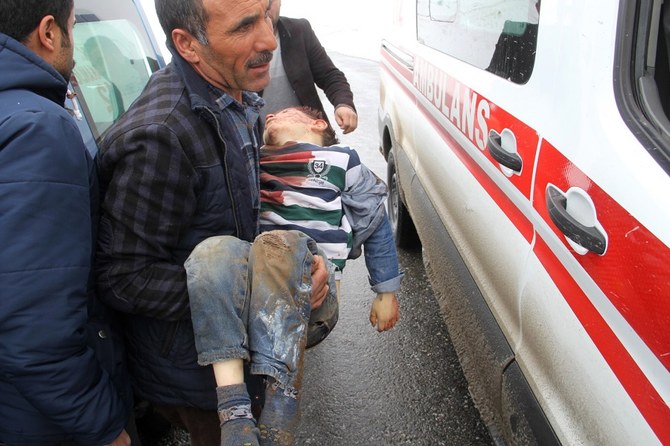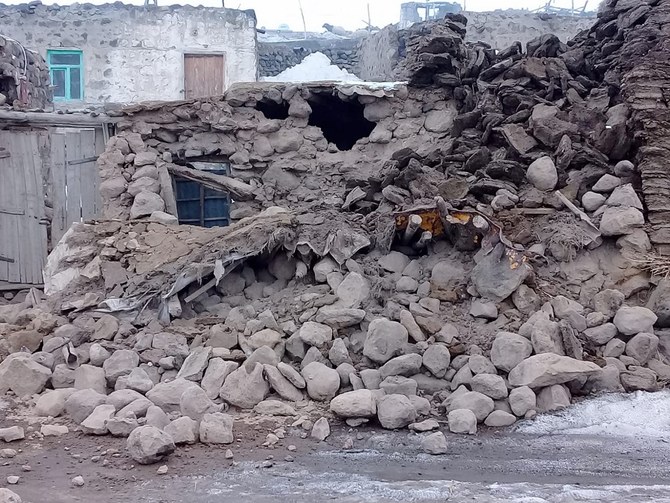ISTANBUL: A magnitude 5.7 earthquake in northwestern Iran on Sunday killed at least nine people in neighboring Turkey and injured dozens more on both sides of the border, authorities said.
The epicenter of the quake, which struck at 9:23 a.m., was near the Iranian village of Habash-e Olya, less than 10 km from the border, according to the US Geological Survey.
The earthquake had a depth of 6 km, said Tehran University’s Seismological Center.
In Turkey, it was felt mostly in the eastern district of Baskale in Van province on the Iran border.
Interior Minister Suleyman Soylu said nine people were killed, speaking to reporters from the quake scene in Van. Four of the dead were children.
“We have right now no citizens trapped under the rubble,” he said.
NUMBER
37 - people were injured in Turkey, nine of them were in critical condition, according to Turkish Health Minister Fahrettin Koca.
Images showed collapsed adobe houses in several snow-covered villages in Van province.
In Gurpinar village, search and rescue teams were seen on top of the rubble pile, watched by anxious locals.
Van, which was hit by a 7.1 magnitude quake in 2011 killing more than 500 people, was struck by tragedy again this month when two avalanches left 41 people dead.
It injured at least 51 people in Iran’s West Azerbaijan province, 17 of whom had been hospitalized, the country’s emergency services said.
The same source also said there was damage to buildings in 43 villages. Sunday’s earthquake was felt in several Iranian cities, including Khoy, Urmia, Salmas and Osku, state media reported, citing West Azerbaijan’s crisis management center.
Both Iran and Turkey sit on top of major tectonic plates and see frequent seismic activity.
In November 2017, a 7.3-magnitude quake in Iran’s western province of Kermanshah killed 620 people.
In 2003, a 6.6-magnitude quake in southeastern Iran decimated the ancient mud-brick city of Bam and killed at least 31,000 people.
Iran’s deadliest quake was a 7.4-magnitude tremor in 1990 that killed 40,000 people in northern Iran, injured 300,000 and left half a million homeless.
In December and January, two earthquakes struck near Iran’s Bushehr nuclear power plant.
Iran’s Gulf Arab neighbors have often raised concerns about the reliability of the country’s sole nuclear power facility, which produces 1,000 megawatts of power, and the risk of radioactive leaks in case of a major earthquake.
Turkey is also prone to earthquakes and over 40 people died in January after a 6.8-magnitude quake struck Elazig in eastern Turkey.
In 1999, a devastating 7.4 magnitude earthquake hit Izmit in western Turkey, killing more than 17,000 people including about 1,000 in the country’s most populous city, Istanbul.















